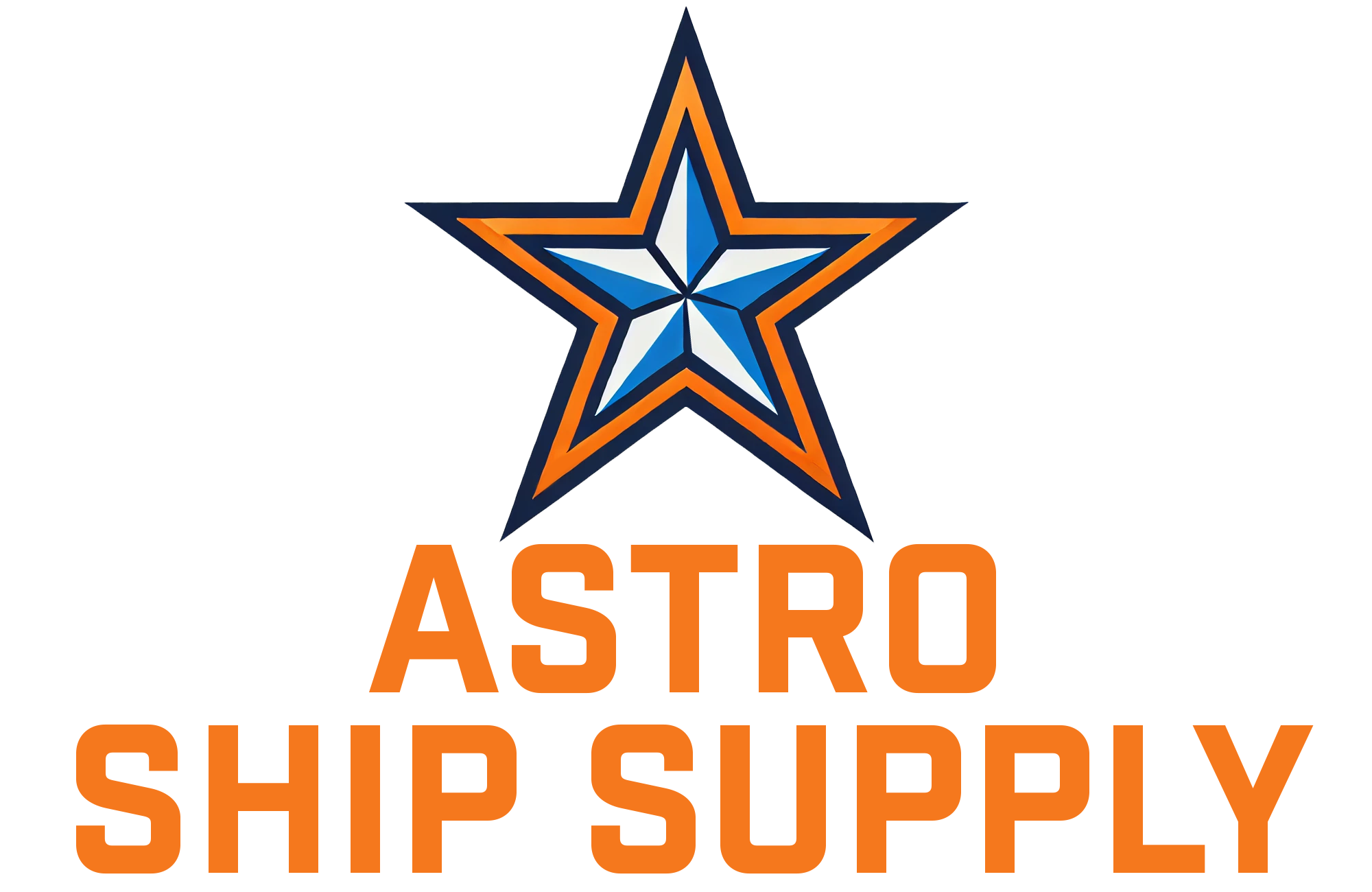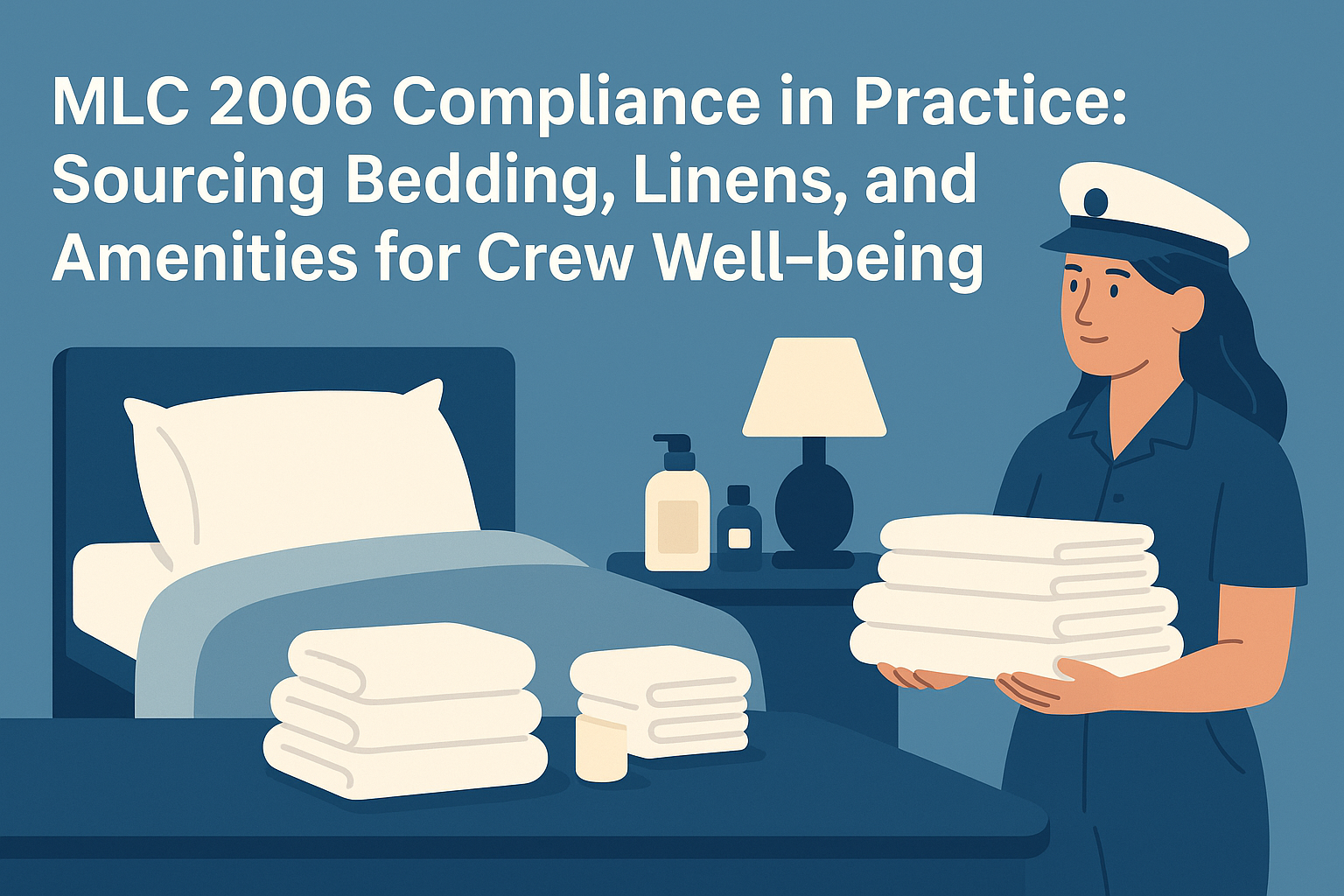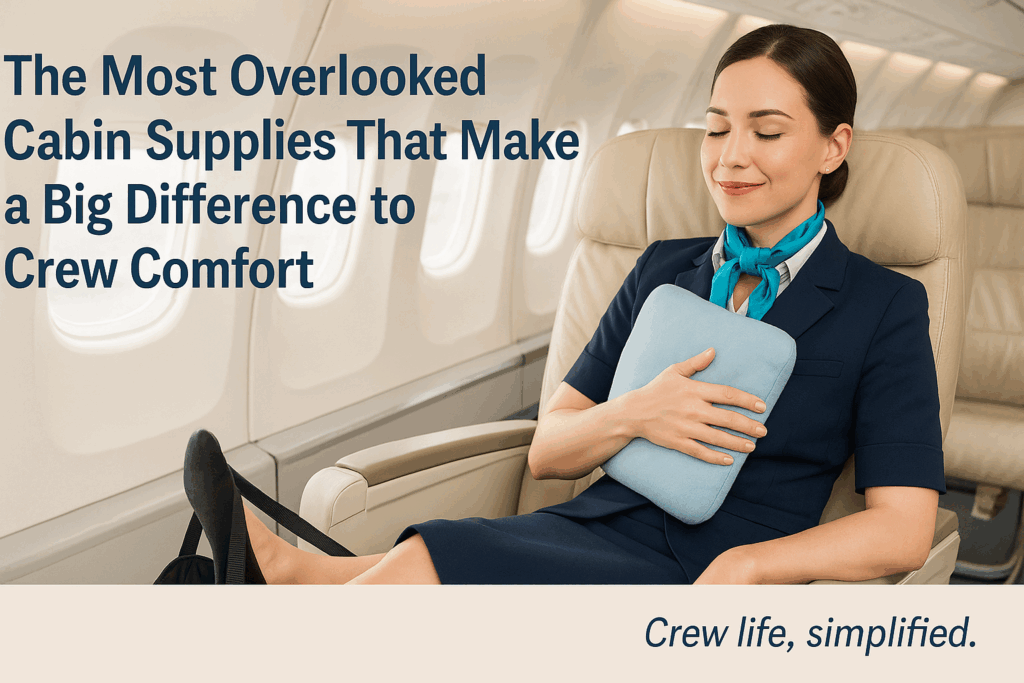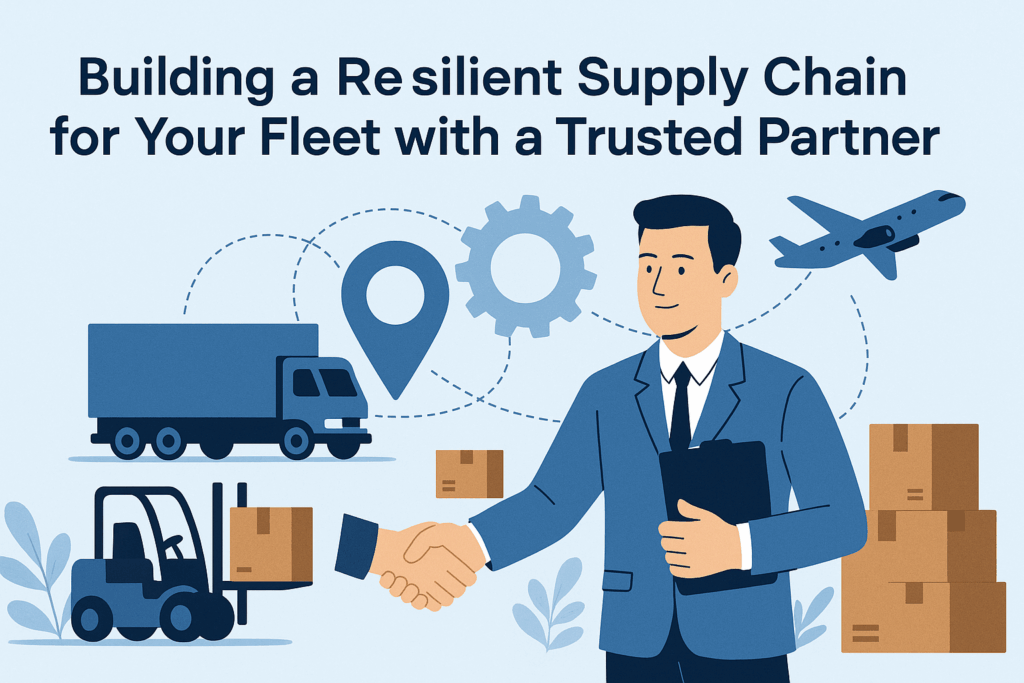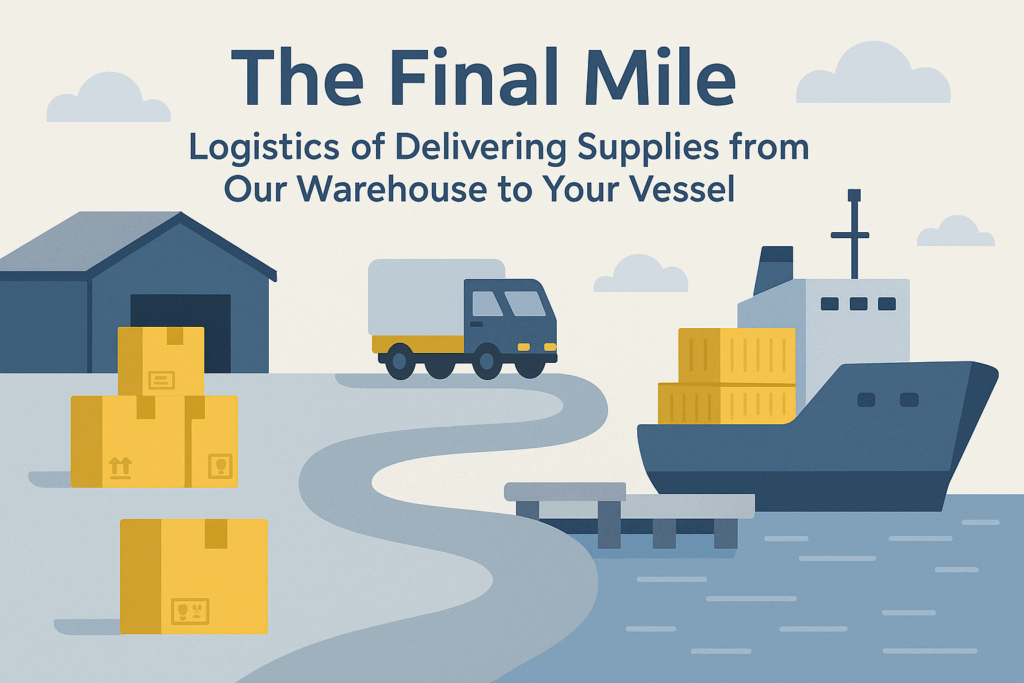This deep dive explores the practical aspects of sourcing bedding, linens, and essential amenities that meet MLC 2006 standards. We’ll move beyond the legal jargon to provide actionable insights, comparative analyses, and real-world scenarios to help you navigate the complexities of compliant procurement. Our aim is to equip you with the knowledge to make informed decisions that ensure crew well-being while optimizing your operational efficiency.
—
Understanding MLC 2006: More Than Just a Checklist
MLC 2006, often dubbed the “seafarers’ bill of rights,” consolidates and updates over 68 international labor standards relating to the maritime sector. It addresses a wide array of areas, from employment conditions and wages to health protection, medical care, and accommodation. When it comes to cabin and accommodation standards, the convention is quite specific, focusing on aspects that directly impact the crew’s daily lives.
Key MLC 2006 Provisions for Accommodation:
- Space and Ventilation: Adequate space for sleeping, recreation, and personal belongings. Proper ventilation to ensure a healthy atmosphere.
- Heating and Lighting: Sufficient heating and lighting to ensure comfort in varying climates and at all times of the day.
- Sanitary Facilities: Access to clean and functional washing facilities, including showers, toilets, and washbasins.
- Medical Facilities: Clearly defined requirements for onboard medical facilities and access to medical care.
- Food and Catering: Standards for food quality, quantity, and catering facilities.
- Recreational Facilities: Provisions for recreational activities and access to communication facilities.
While MLC 2006 sets the baseline, the interpretation and implementation can vary. The focus for bedding, linens, and amenities falls under the broader umbrella of “clean and comfortable living conditions,” ensuring that seafarers have a restful and hygienic environment.
—
The Essential Trio: Bedding, Linens, and Amenities
Beyond the structural requirements of a cabin, the daily comfort of a seafarer hinges on the quality and availability of their bedding, linens, and personal amenities. These items are not just conveniences; they are integral to hygiene, rest, and overall well-being, directly contributing to compliance with MLC 2006’s spirit of providing a decent living environment.
Bedding: The Foundation of Restful Sleep
Quality bedding is crucial for a seafarer’s rest, especially given irregular work schedules and often challenging sea conditions. MLC 2006 implicitly emphasizes the need for comfortable sleeping arrangements. This includes:
- Mattresses: Durable, comfortable, and hygienic mattresses that provide adequate support. They should be resistant to mold and mildew, especially in humid maritime environments.
- Pillows: Hypoallergenic and supportive pillows that promote good neck alignment.
- Duvets/Blankets: Appropriate for varying climates, ensuring warmth in colder regions and breathability in warmer ones. They should be easy to clean and maintain.
- Mattress Protectors: Essential for hygiene, extending the life of mattresses, and easy to wash.
Linens: Promoting Hygiene and Comfort
Clean and fresh linens are fundamental to onboard hygiene and comfort. MLC 2006 mandates that vessels provide clean bedding and towels, and the frequency of change is often dictated by company policy, though best practice suggests regular replenishment.
- Bed Sheets: Durable, comfortable, and easy-to-wash sheets (flat and fitted) made from breathable materials like high-thread-count cotton or blends.
- Pillowcases: Matching pillowcases that are frequently changed.
- Towels: A generous supply of bath towels, hand towels, and face cloths. They should be absorbent, soft, and quick-drying.
- Laundry Services/Facilities: Availability of onboard laundry facilities or access to laundry services for regular cleaning of personal and vessel linens.
Amenities: Enhancing Daily Living
While not explicitly detailed in MLC 2006 to the same extent as structural accommodation, the provision of essential personal amenities significantly enhances a seafarer’s quality of life and supports hygiene standards. These often fall under the “other necessary facilities” clause.
- Personal Hygiene Kits: Soap, shampoo, conditioner, toothpaste, toothbrushes, and razors. Biodegradable options are often preferred for environmental reasons.
- Toilet Paper: Consistent supply of good quality toilet paper.
- Cleaning Supplies for Cabins: Access to basic cleaning supplies for crew members to maintain their own cabins (e.g., surface wipes, small garbage bags).
- Drinking Water: Readily available, safe drinking water, preferably with accessible dispensers.
- Storage Solutions: Adequate cupboard space, drawers, and hangers for personal belongings.
—
Comparative Analysis: Sourcing Strategies for MLC 2006 Compliance
When it comes to procuring cabin supplies, ship owners and managers have several avenues. Each strategy presents its own set of advantages and disadvantages in terms of cost, convenience, and assurance of MLC 2006 compliance.
Option 1: Direct Procurement from General Suppliers
This involves purchasing items from a variety of land-based suppliers, such as wholesale linen providers, general retail stores, or online marketplaces.
Pros:
- Potentially Lower Unit Cost: Can sometimes secure lower prices, especially for bulk purchases of common items.
- Wide Variety: Access to a vast range of products and brands.
Cons:
- Logistical Complexity: Requires coordinating multiple suppliers, managing deliveries to the port, and consolidating shipments.
- Quality Control Issues: Less assurance of maritime-grade quality or suitability for the harsh marine environment.
- Compliance Risk: Higher risk of inadvertently procuring items that do not meet MLC 2006 or other maritime standards (e.g., fire retardancy for fabrics).
- Customs and Port Challenges: Navigating customs clearance and port entry for diverse goods from multiple vendors can be cumbersome.
Option 2: Utilizing a Specialized Ship Chandlery
A ship chandlery, like Astro Ship Supply, specializes in providing a comprehensive range of provisions, technical supplies, and crew welfare items directly to vessels in port.
Pros:
- MLC 2006 Compliance Assurance: Reputable chandlers are intimately familiar with MLC 2006 and other maritime regulations, ensuring all products meet the necessary standards (e.g., fire ratings for textiles, food safety for provisions, and general quality suitable for marine use).
- Streamlined Logistics: Single-point sourcing for a wide array of needs, simplifying ordering, delivery, and invoicing. Chandlers handle all port logistics and customs.
- Quality Control: Chandlers typically have established quality control processes and relationships with suppliers of marine-grade products.
- 24/7 Availability: Many offer round-the-clock service, crucial for vessels with tight schedules.
- Customized Solutions: Ability to tailor orders to specific crew sizes, nationalities, and preferences, while maintaining compliance.
- Local Expertise: Knowledge of local regulations, port procedures, and supply chain intricacies.
Cons:
- Potentially Higher Unit Cost: The convenience, compliance assurance, and specialized service may come with a slightly higher per-unit cost compared to direct bulk buying from general retailers. However, this is often offset by reduced logistical overheads and avoided compliance penalties.
Option 3: Hybrid Approach
Combining direct procurement for certain non-critical items with a chandlery for essential, compliance-critical supplies.
Pros:
- Flexibility: Balances cost-saving potential with compliance assurance.
- Optimized Sourcing: Allows for strategic procurement based on item criticality.
Cons:
- Increased Management Overhead: Still requires managing multiple vendors and some logistical coordination.
- Potential for Inconsistency: Risk of varying quality standards across different suppliers.
For MLC 2006 compliance, particularly for items directly impacting crew well-being and safety, **utilizing a specialized ship chandlery like Astro Ship Supply** offers the most robust and risk-averse solution. Their expertise in maritime standards significantly reduces the burden of compliance for vessel operators, ensuring that cabin and accommodation supplies consistently meet regulatory requirements.
—
Case Studies: MLC 2006 Compliance in Action
Let’s consider a few scenarios to illustrate the practical implications of sourcing strategies for MLC 2006 compliance.
Case Study 1: The Last-Minute Port Call – Navigating Unexpected Needs
A container vessel, “MV Neptune,” experiences an unexpected crew change in the Port of Houston due to a medical emergency. The incoming crew members are of a different nationality than the outgoing, requiring specific pillow types and linen sizes not currently stocked onboard. With a tight turnaround of 24 hours before the next leg of the journey, immediate replenishment is critical to maintain MLC 2006 standards and crew comfort.
Challenge:
Sourcing specific, compliant cabin supplies quickly and efficiently without delaying the vessel’s departure.
Chandlery Solution:
MV Neptune’s purchasing manager contacts Astro Ship Supply’s 24/7 support. Leveraging their extensive inventory and understanding of diverse crew needs, Astro Ship Supply rapidly identifies and delivers the required mattresses, linens, and specific amenities (e.g., culturally appropriate toiletries) to the vessel within hours, ensuring MLC 2006 compliance is maintained and the new crew members settle in comfortably. The chandlery handles all port entry and delivery logistics, minimizing the burden on the ship’s agent.
Outcome:
Vessel departs on schedule, new crew is satisfied, and MLC 2006 compliance is upheld without incident.
Case Study 2: Proactive Fleet-Wide Compliance Upgrade
A shipping company, “Global Maritime,” decides to undertake a proactive fleet-wide upgrade of all their vessel’s cabin and accommodation provisions to exceed MLC 2006 minimums, aiming for enhanced crew satisfaction and retention. They need consistent quality and documented compliance for all 15 vessels in their fleet, operating globally.
Challenge:
Ensuring standardized, high-quality, and compliant cabin supplies across a diverse fleet with varying port calls, while maintaining cost-effectiveness and detailed record-keeping for audits.
Chandlery Solution:
Global Maritime partners with a specialized chandlery with a global network or a strong presence in their key operating regions. The chandlery, acting as a central procurement hub, develops a standardized MLC 2006-compliant cabin supply package, including detailed specifications for mattresses, linens (e.g., fire-retardant certifications), and amenities. They manage the logistics for delivery to each vessel as it calls at designated ports, providing comprehensive documentation for all supplied items, simplifying Global Maritime’s audit process.
Outcome:
Consistent, high-quality cabin provisions across the entire fleet, improved crew satisfaction, simplified compliance auditing, and optimized procurement processes.
Case Study 3: The Budget-Constrained Vessel – Balancing Cost and Compliance
A small independent vessel operator, “Seafarer’s Dream,” is operating on a tight budget but is committed to MLC 2006 compliance. They need to replace worn-out bedding and provide fresh amenities for their 10-person crew during a port call in Houston.
Challenge:
Sourcing compliant and durable cabin supplies within a limited budget, without compromising on MLC 2006 standards.
Chandlery Solution:
Seafarer’s Dream contacts Astro Ship Supply, outlining their budget constraints. Astro Ship Supply, leveraging its diverse product range and supplier relationships, offers several MLC 2006-compliant options at different price points. They help the operator select durable, cost-effective linens and essential amenities that meet all regulatory requirements, providing value without sacrificing quality or compliance.
Outcome:
The vessel successfully procures compliant cabin supplies within budget, ensuring crew comfort and avoiding potential non-compliance penalties.
—
Choosing Your Ship Chandlery Partner: Key Considerations
Selecting the right ship chandlery is crucial for seamless MLC 2006 compliance and efficient operations. Here are key factors to consider:
- MLC 2006 Expertise: Does the chandlery demonstrate a deep understanding of MLC 2006 requirements for accommodation, provisions, and welfare? Look for certifications like ISO 9001:2015 (Quality Management System) and HACCP (Food Safety Management), as well as compliance with the International Ship and Port Facility Security (ISPS) Code, which indicates a robust, secure supply chain.
- Product Range and Quality: Can they supply a comprehensive range of high-quality, marine-grade bedding, linens, and amenities? Do they source from reputable manufacturers?
- Logistical Capabilities: Do they offer efficient, timely delivery to your vessel’s location, including 24/7 service if needed? Can they handle customs and port procedures smoothly?
- Customer Service and Responsiveness: Are they responsive to inquiries, flexible with orders, and able to provide tailored solutions?
- References and Reputation: What do other clients say about their service? A chandlery with a strong track record of reliability and customer satisfaction is invaluable.
- Competitive Pricing: While not the sole factor, ensure their pricing is competitive for the level of service and quality offered. Remember to consider the total cost, including reduced logistical burden and compliance risk.
—
Quotable Insights: The Value of Compliant Cabin Supplies
Ensuring MLC 2006 compliance for cabin and accommodation supplies offers tangible benefits beyond avoiding penalties:
- Enhanced Crew Morale & Retention: Comfortable living conditions contribute significantly to crew satisfaction, leading to higher morale and reduced turnover. A well-rested crew is a productive and safer crew.
- Improved Operational Efficiency: Fewer complaints about living conditions mean less time spent addressing such issues, allowing the crew to focus on their primary duties.
- Reduced Health Risks: Hygienic bedding and amenities minimize the spread of illness onboard, safeguarding crew health and reducing medical-related diversions.
- Positive Reputation & Audits: Demonstrating proactive compliance with MLC 2006 enhances a company’s reputation within the industry and ensures smoother port state control inspections and audits.
- Legal & Financial Protection: Adherence to MLC 2006 reduces the risk of fines, detentions, and legal disputes arising from non-compliance with international labor standards.
—
Additional Considerations: Beyond the Basics
Environmental Sustainability:
Many shipping companies are increasingly prioritizing environmentally friendly practices. When sourcing cabin supplies, consider suppliers who offer:
- Sustainable Materials: Linens made from organic cotton, bamboo, or recycled materials.
- Reduced Packaging: Suppliers committed to minimizing plastic and excessive packaging.
- Biodegradable Amenities: Personal care products that are biodegradable and marine-safe.
Cultural Sensitivity:
A diverse crew often means diverse needs. A good chandlery can help navigate these sensitivities:
- Dietary Provisions: While this article focuses on cabin supplies, remember that MLC 2006 also addresses food. A comprehensive chandlery can also assist with provisions that cater to various dietary and cultural requirements.
- Specific Amenities: Certain cultures may prefer specific types of soaps, toiletries, or bedding materials.
Emergency Supplies:
While not strictly part of daily cabin supplies, consider the provision of emergency blankets, first-aid kits, and other safety-related items within or near crew accommodation areas, aligning with broader safety management systems. Also, look at the chandlery’s ability to supply deck supplies and equipment, which often includes safety gear.
—
Conclusion: Investing in Crew Well-being is Investing in Your Business
MLC 2006 compliance, particularly concerning cabin and accommodation supplies, is far more than a regulatory hurdle. It’s a fundamental aspect of responsible maritime operations, directly impacting crew well-being, operational efficiency, and a company’s reputation. By strategically partnering with a knowledgeable and reliable ship chandlery, vessel operators can confidently navigate the complexities of procurement, ensuring their crews are well-rested, comfortable, and ready to meet the demands of the sea. The investment in quality bedding, linens, and amenities is an investment in your most valuable asset: your seafarers, ensuring their journey’s success and the smooth sailing of your entire operation.
—
Frequently Asked Questions (FAQ) about MLC 2006 Cabin Compliance
What is MLC 2006 and why is it important for ship operators?
MLC 2006, the Maritime Labour Convention, 2006, is an international treaty setting minimum working and living standards for seafarers. It’s crucial for ship operators because it ensures fair treatment and safe conditions for crew, directly impacting morale, productivity, and avoiding potential legal penalties or vessel detentions for non-compliance during port state control inspections.
How often should bedding and linens be changed onboard to comply with MLC 2006?
While MLC 2006 mandates the provision of clean bedding and towels, it doesn’t specify an exact frequency. Best practice, often guided by company policy and flag state requirements, generally suggests a weekly change for sheets and pillowcases, and at least twice weekly for towels, or more frequently if conditions warrant (e.g., in hot climates or for crew members engaged in particularly strenuous work). Regular washing facilities or services must be available.
Are there specific fire safety standards for bedding and linens on vessels?
Yes, maritime regulations, often supplementing MLC 2006 (which focuses on general welfare), typically require bedding and textiles used onboard to meet specific fire retardancy standards. These are usually outlined by flag states and classification societies, often referencing IMO (International Maritime Organization) codes. A reputable ship chandlery will ensure the bedding and linens they supply are certified to these marine fire safety standards.
Can a ship chandlery help with custom orders for diverse crew needs?
Absolutely. Experienced ship chandlers like Astro Ship Supply understand the diverse cultural backgrounds of international crews. They can often source or customize orders for specific types of bedding, toiletries, or other amenities to cater to different preferences and needs, ensuring maximum crew comfort and satisfaction while maintaining MLC 2006 compliance.
What documentation should I expect from a chandlery to prove MLC 2006 compliance for cabin supplies?
A reliable chandlery should provide clear invoices and delivery notes detailing the items supplied. For certain critical items like fire-retardant textiles, they should be able to provide copies of manufacturer certifications or compliance statements upon request. Their own internal quality management systems (e.g., ISO 9001:2015) also demonstrate their commitment to providing compliant products.
